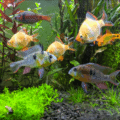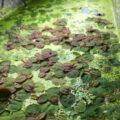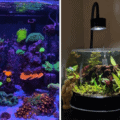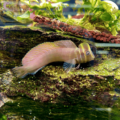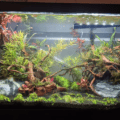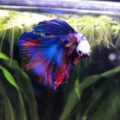The sudden appearance of white stringy poop dangling from your fish can evoke a whirlwind of concern and confusion. What does it mean? Is your aquatic friend in distress? This comprehensive article will help you discern if this is benign or a potential parasite infestation using insights from normal fish fecal matter. If the latter, this article also provides expert advice on treatment options.
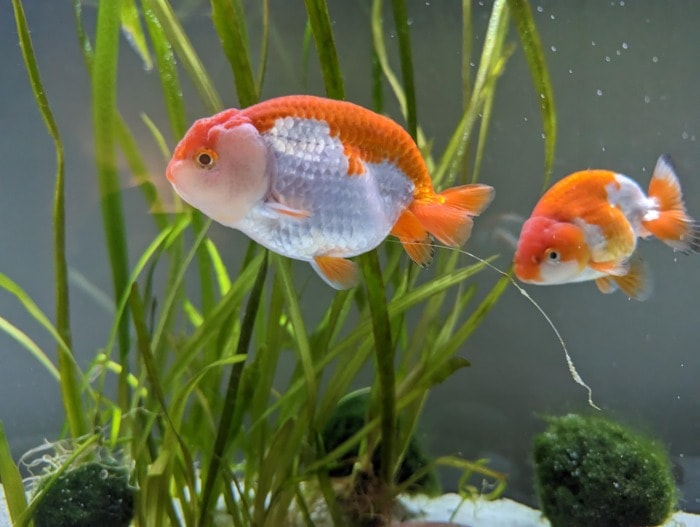
You saw what looks like white stringy poop hanging from your fish and you’re probably shocked, or at least I was when I first saw that.
But this can affect any fish and not only goldfish. A normal-looking fish poop should immediately leave the body and should be colored similarly to the fish’s recent meal.
Fish that mostly munch on plants should have dark green stools whereas carnivorous fish should excrete red-ish to brown feces.
What normal fish poop appears visually:
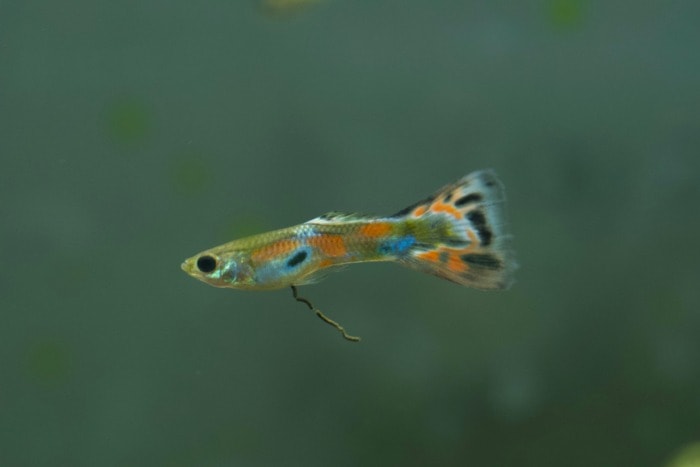
If the poop is too long and attached to the fish for lengthy periods of time it could signal an underlying disease.
Though rarely, in some cases fish pooping white could mean that they are infested with internal parasites.
Why is white wiry poop coming out of your fish?
Early on in my fishkeeping journey, I used to watch my goldfish swim around his tank.
One day, everything seemed normal until nature “called”. Instead of the normal, dark-colored string trailing behind him, I noticed it was white.
Of course, that got me alarmed.
Was my goldfish sick? Was he dying? Or was it something else?
After frantically researching this, I discovered the most common causes of it.
Here’s the reason behind white stringy poop coming out of your fish:
The white you see in your fish’s poop is actually mucus from its intestines which typically helps it pass stools. On a full stomach, the mucus is barely visible and the color of the stool is similar to that of the food the fish ate. However, when its stomach is empty, the fish will only pass mucus.
In other words, the fish is pooping white strands because it hasn’t eaten recently.
It doesn’t even mean that your fish is starving. Remember, fish in the wild forage throughout the day, and can survive relatively lengthy periods without any food at all.
If you only feed your fish once or twice per day, there will be periods of time when its stomach is empty, and it poops out mucus. It’s usually normal and nothing to be concerned about, barring any additional symptoms like not eating.
Another common reason fish poop long white strands is that their water is too warm.
With warmer water, their metabolism speeds up, and as it does, they pass food quicker. That could happen even when you haven’t changed their feeding schedule.
Sometimes, fish pass white mucus strands when they’re getting ready to breed, too.
It might seem concerning because it looks like a parasite (and in some cases, it could be, which I’ll discuss shortly), but most of the time, there’s no reason to worry.
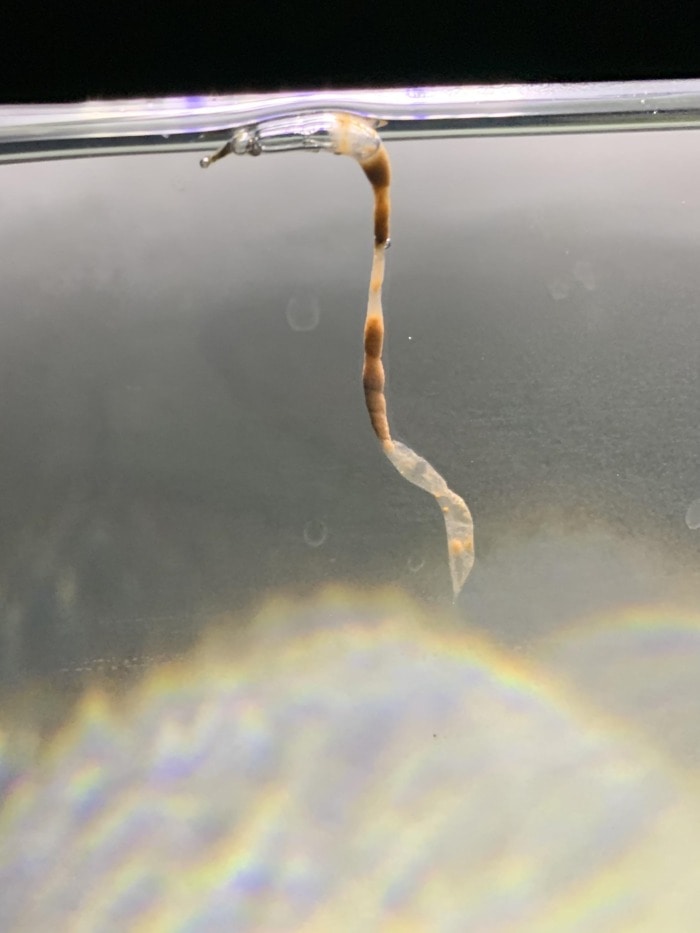
Author’s note: A lot of people, me included, recommend letting fish fast sometimes, especially when sick. But this only exacerbates the condition, which could make inexperienced aquarists think the fish is still sick.
Sometimes when a fish is pooping white strings, it could mean internal parasites
While rare, parasites can present themselves in aquarium fish. In my research on the subject, I found one aquatic veterinarian who confirms that in her entire career, she had only diagnosed internal parasites twice. And even then, both fish were wild-caught.
Internal parasites are pretty rare in tank-bred fish.
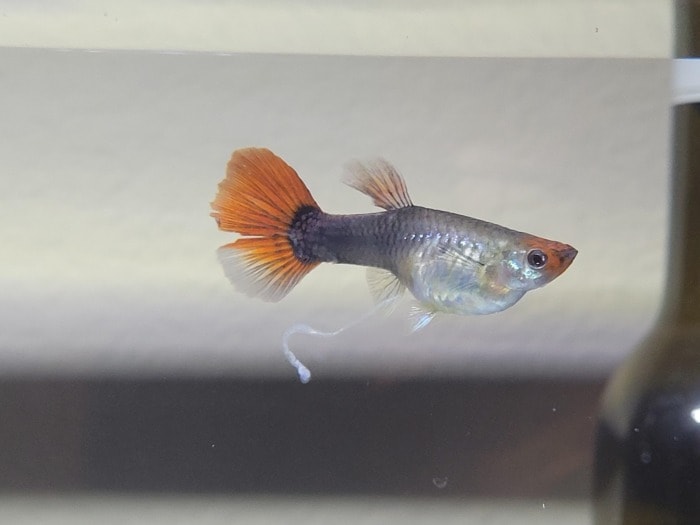
Unless your fish are wild-caught, in contact with wild-caught fish, or you place unsensitized decor or plants into your aquarium, it’s unlikely that the white strings you see are parasites.
Author’s note: Sourcing aquarium plants, foods and fish from reputable sellers is one of the best way to avoid any parasitic infections in your aquatic pets!
That being said, the causes of internal parasites in fish are pretty straightforward:
The fish consumed something that already hosted the parasite, likely an intermediate host in the wild. If you’re feeding your fish live wild-caught insects, you may introduce internal parasites to its system, which is why it’s so important to source food carefully.
If your fish do end up infested with internal parasites, there are two potential reasons they have white poop coming out:
- It may be that the poop itself is the parasite, in which case, you will see it moving. Keep in mind that the aquarium will have water currents which can mislead you when trying to assess the situation.
The normal fish poop itself is so light that it will sway and squirm in the water, giving it the appearance of being alive.
The best way to find out if your pet fish have internal parasites is to use a cup of some sort and suck up the white strand.
Then, place the suspicious feces in still water, in the cup.
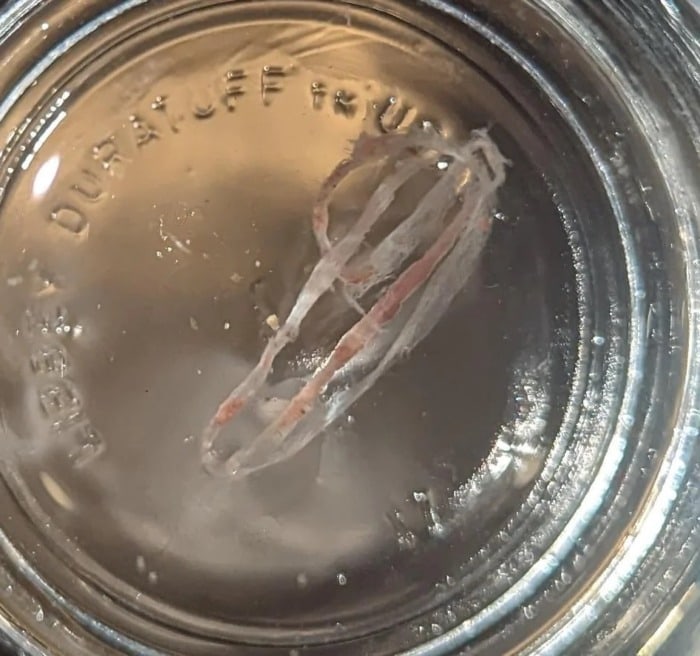
Fish Poop in a Cup – Image by Expensive-Button690
If the strand is still moving in still water, it’s likely a parasitic worm from the Camallanus genus.
- The internal parasites are eating all the food that the fish is eating. When they do, the fish doesn’t have any food in its fecal matter to pass, resulting in white mucus.
If the white poop comes along with certain symptoms, it may be that your fish does have an internal parasite.
A parasite that’s trying to leave the body of your fish looks exactly like white strands to the naked eye, just like the mucus fish poop out.
As to symptoms of fish infested with internal parasites look for the following:
- a lack in appetite
- erratic swimming
- listless behaviors
- you may also be able to see irritation or redness in the tail area.
If those symptoms also come with bloating, it’s possible your fish has a nematode infestation in its stomach. Some fish may also develop a sunken belly, looking sucked in and making a concave shape to your fish’s silhouette.
This can be caused by flatworms.
Another sign of a potential internal parasite infestation would be if all your fish are having these white poops hanging from their bodies at the same time.
And just to be clear: Seeing small white worms in your aquarium does not mean your fish have parasitic worms. There are other species of worms that just inhabit fish tanks and may show themselves under certain circumstances.
Tested ways to treat internal parasites in aquarium fish
A person I’ve spoken to had a guppy presenting with white stringy poop and fish also wasn’t interested in eating.
She tried all the usual things, like providing peas and other fibrous food to cure constipation alongside doing some water changes.
When nothing worked she started reading about parasitic worms in aquarium fish and learned about Seachem Metroplex, a medication treatment for parasites. Two days after treating the tank, her fish was pooping normally again.
That being said, if you suspect something may be wrong with your pet fish you should absolutely consult with your local fish veterinarian. Anyway, there are several medicines on the market to treat internal parasites in fish if you suspect them in your aquarium.
Some of the most popular include:
- Seachem MetroPlex: This medication has metronidazole for treating common bacteria and protozoan parasites in fish. It can be used in the water or in a medicated food mix.
- Fritz ParaCleanse: This treatment includes both praziquantel for worms and flukes, and metronidazole for bacteria and protozoans.
- PraziPro: This medication has higher levels of praziquantel and is effective at treating tapeworms, flukes, turbellarians, and flatworms. It’s by Hikari who, from my experience, are very trustworthy when it comes to products for tackling fish diseases.
- Fritz Expel-P: This dewormer is used for nematodes, hookworms, nodular worms, and roundworms.
Author’s note: Many people online recommend aquarium salt for parasite treatment in fish. While this is effective on external parasites like ich, it won’t do much to the ones inside your fish that are causing it to poop the white strings.
Epsom salt is also sometimes cited as a remedy for this.
However, although it may act as a laxative to help your fish pass parasites, in most cases, you’ll want some sort of deworming medication to treat an infestation.
And remember:
When using medication in your aquarium, it’s always important to read the instructions included on the packaging and follow them to the letter.
The manufacturer will provide you with the correct dosages to have a therapeutic effect.


